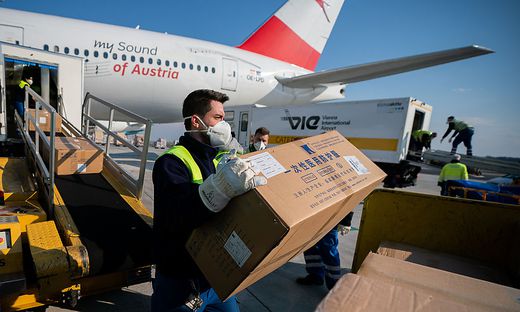While deliveries of masks from China were received by high political celebrities in every country in the spring, Eastern European nurses were brought into the country almost secretly. The two-class society of European citizens is an issue of co-existence in Europe that should be given more attention.
One of the most important pillars of European freedoms for over 450 million citizens are the four fundamental freedoms. It is important for the internal market that citizens of the EU can move and work freely. The freedom to travel is also a strong boost for getting to know other countries. This breaks down prejudices about other countries and weakens nationalism.
No pathos, harsh reality
However, as pathetic as unlimited travel is touted, especially for vacations, it is a necessity for many people. Many people still think of fun first when they talk about travel. Pleasures that have to stand behind in times of crisis. But the reality for millions of people in Europe is different: They “travel” in order to earn their livelihood and to be able to look after their families.
1.2 billion border crossings in the Schengen area per year
Commuting is part of everyday life for many people around the world. In political debates in Austria, this topic is reflected primarily in the area of tax treatment (commuter allowance) and climate protection (individual traffic or public transport).
Around 282,000 Germans commuted abroad to work. 450,000 French and 220,000 Poles as well. In the EU, more than 2.5 million people regularly commuted across national borders in 2018.
Business travels are more than the business class flight to Frankfurt. They are a necessity (and also an opportunity) for millions of Europeans. Europeans who - if they come from the "wrong" country - are smiled at or mocked by populists for being migrating for work.
Necessity in order to get higher wages, raise the standard of living of families or even get any prospect of a job.
Arbitrary travel warnings and border closures divide Europe
In view of the fact that “travel” is the basis of life for millions of people and is also one of the freedoms, measures that restrict these fundamental freedoms must be measured and legally sound. The corona pandemic has shown that some governments in the EU still prefer national measures. However, reality caught up with them, which is why they had to quickly create umpteen exceptions. Because: Suddenly the harvest workers and care workers were locked out, deliveries could no longer cross the borders, which led to supply problems in many areas of the economy.
A pandemic requires strict measures ...
It was important that states reacted quickly and rigorously at the start of the pandemic. An exceptional situation for which one was not prepared enough and which many tabloids blamed "Brussels" for.
But even now, almost 10 months after the pandemic arrived in Europe, many want to act act purely nationally. Regarding the strong national feelings it is indeed a great sign of solidarity that the EU member states worked together in buying vaccinations and didn't take advantage of the situation,
... but coordinated in Europe
Travel warnings are distributed weekly. Every country has different numbers, methods, calculations and test strategies. Border closures depend on the tourist seasons, whether you are allowed to go home from work or have to stay 14 or 10 days (that also varies) in the host country, depends on the hourly development and your main residence. The Corona apps are not compatible across the borders.
Many still not have understood that living together in a united Europe is not a pathetic vision for May 9th, but a reality for millions of people. A person who lives in Kehl is more dependent on how the administration in Strasbourg or Paris reacts than what Berlin decides. When Hungary closes its border, it affects Burgenland.
But people still pretend to be able to rely on purely national solutions in a small Europe, whose (border) regions are so closely interlinked.
Migration is a fact in Europe
In Europe, social connections across borders are also a fact that people tend to keep quiet in the face of difficult migration debates. But the reality is that migration has always existed within Europe. Many people had to leave their families at home in order to have better opportunities in another country.
In Austria, for example, these are people from Eastern and Southeastern Europe who live, work and have built something here. These people are also affected by travel bans and border closings, and some can no longer see their families for months. It would be presumptuous here to speak of travel as a “party vacation”.
Physical distancing leads to social distance
In times of pandemics, strict and effective measures are required. However, the lives of tens of millions of migrating people should not be discredited or made ridiculous. It is a terrible reality not to be able to see your family for months. It doesn't matter whether the elderly parents live nearby or in another country.
If the 1-visitor-per-week rule in Austrian Care homes is very tough, there are also many people in Austria who have not had the opportunity to visit someone in their home country - be it Georgia, Russia or the Philippines - for many months.
Technological possibilities certainly offer help to keep in touch. The question is whether we really want professional as well as family contact to be more and more technological. Or whether our co-existence in Europe would not lack something, namely human closeness.
Yet another important value is currently being put to the test: solidarity. The careless handling of many in times of a virus pandemic, because he or she considers mouth and nose protection on the bus to be a dictatorial measure, often leads to doubts about the empathy of some.


